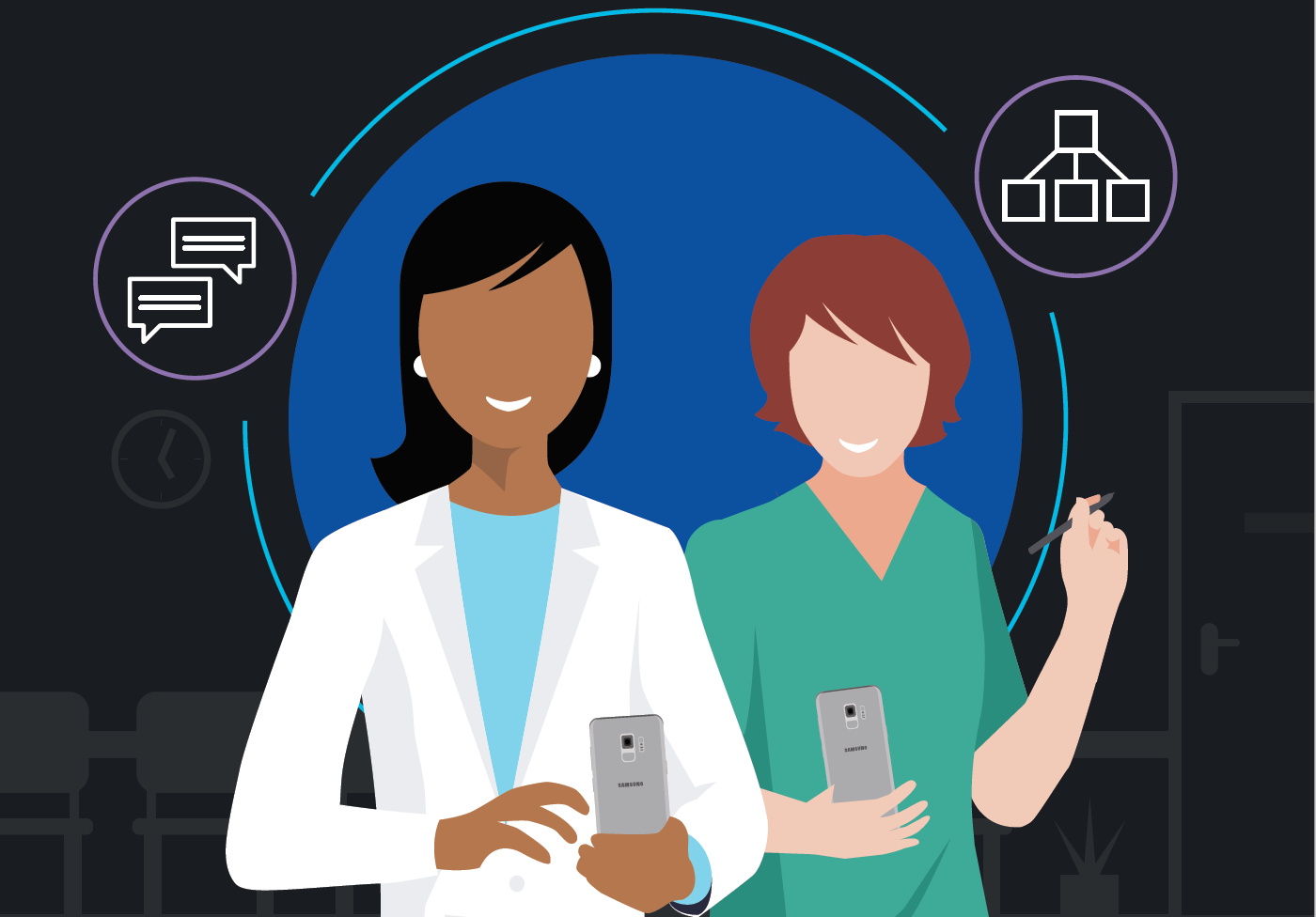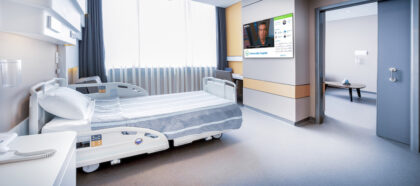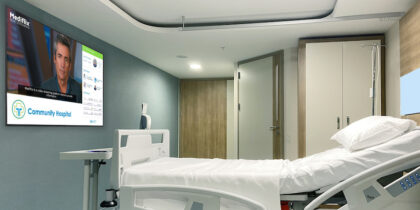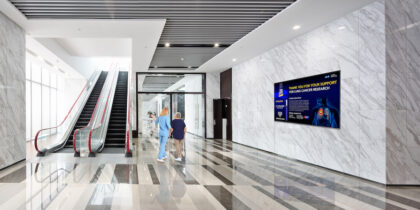Nobody wants unexpected surprises to come up in an operating room, especially when they raise questions that can’t easily be answered.
Unfortunately, there are always occasions where an emergency case or even a routine procedure exposes abnormalities or rare conditions that require a second opinion. When that happens, a patient’s health can be put at risk if they can’t quickly be transferred to see a specialist in another location.
Boston-based Avesha is addressing that challenge with advanced communication and collaboration technology that allows a doctor in a regional medical center, for example, to consult virtually with experts in a university teaching hospital to get their guidance on cases in real-time.
Healthcare providers can connect to Avesha using BlueJeans over a Verizon 5G network and a Samsung Galaxy Tab S7 to work together on treating a patient.
Dr. Shannon Scholl and her team at the Raleigh Endoscopy Center are among the medical professionals who see great promise in how Avesha’s applications and platform could assist them when time is of the essence.
“[A colleague] can be available through this technology to conference with me and use the Samsung tablet with the S Pen to direct me on how exactly to place my instruments,” Scholl said in a video shown during the recent virtual symposium, “Work Reimagined,” where Verizon and Samsung showcased 5G innovations. “As he marks X’s on the tablet, I see them on the monitor in my room.”
From the cloud to the edge
According to Prasad Dorbala, Avesha’s chief product officer, the company’s technology was designed to ease the connectivity of distributed application deployments. This is true of its Avesha Smart Application Mesh, which can extend applications from the data center and the cloud to edge networks. These capabilities have been critically important for organizations pursuing digital transformation.
How to create a mobile-first hospital
Get your free guide to modernizing clinical communications with smartphones. Download Now
Moving data and computing workloads to the cloud can bring challenges in terms of latency, data governance and security, says Dorbala. The advent of edge computing, however, allows Avesha to help bring services closer to where data is being generated. Healthcare is a perfect example of where this can make a considerable difference.
“When you have a scope inside the body, you can’t say, ‘hey, the data is coming, hold on,'” Dorbala notes. “You have to have that experience happen faster. The latency is critical in that. It is the pivotal use case — a must-have rather than a nice-to-have.”
Organizations can build their own solutions on top of Avesha’s Smart Application Cloud Framework, but Avesha has developed its own healthcare application to help educate the market on what’s possible in terms of real-time intelligence and dynamic collaboration.
In addition to enabling critical conversations between doctors and remote experts over BlueJeans, Avesha also enables artificial intelligence (AI) algorithms to run in real-time to help medical professionals identify medically relevant objects of interest during procedures. For instance, AI can help identify a polyp or lesion that needs attention or help physicians determine which areas they should focus on first.
“We’re now looking at extending this use case with natural language processing (NLP), where the physician can say, ‘take a picture,’ because they found something interesting and want to take a better look at it,” says Dorbala, adding that the application can also assist with documenting what is found. “If I am a medical professional doing tons of procedures, I should not be spending half of my time trying to fill in reports. I should be focusing on the patients.”
Reimagining the future of healthcare
The Verizon 5G network is critical to supporting these kinds of edge computing scenarios, according to Dorbala. Samsung’s mobile devices, meanwhile, provide the ease of use that healthcare professionals need to concentrate on the procedure at hand.
The potential applications of Avesha’s technology extend beyond medical emergencies as well. For instance, it could help healthcare organizations reimagine the way medical students are instructed, or even how radiologists or physicians who can’t come into a location train each other.
For patients, meanwhile, AI can enable better collaboration with their care teams, as it can spare them from having to remember everything about their medical history and how it has changed between visits.
“Part of the value is greater accuracy from a data standpoint, which means fewer errors,” says Dorbala. “The other aspect is simply an improved quality of life, both for patients and for healthcare professionals.”
How smart are your hospital’s clinical communications? Take this short survey to find out — and get personalized advice on how to bring it up to speed. And explore how Samsung’s broad device portfolio of digital health technology can reimagine the continuum of care in any setting.








